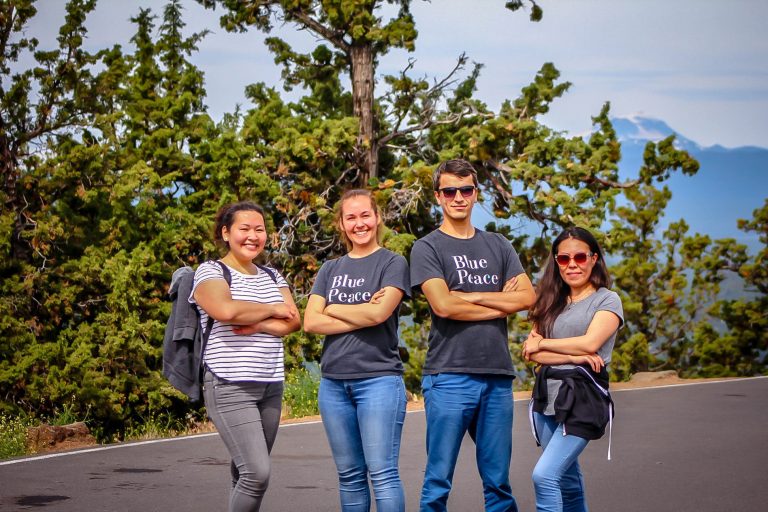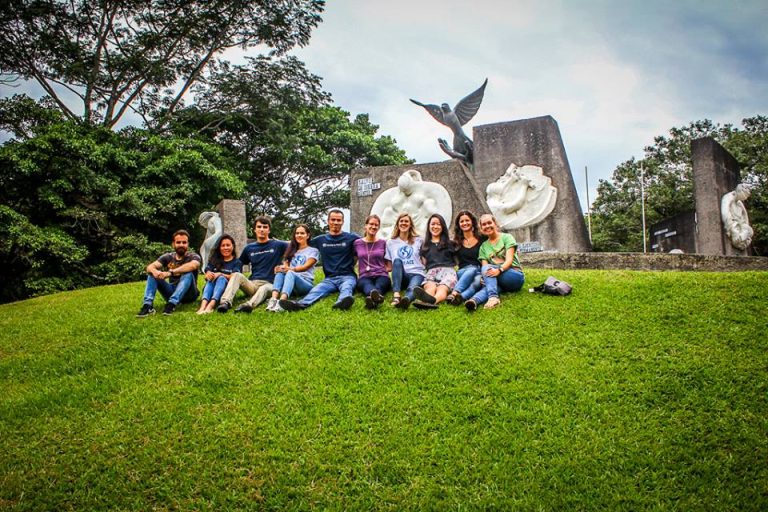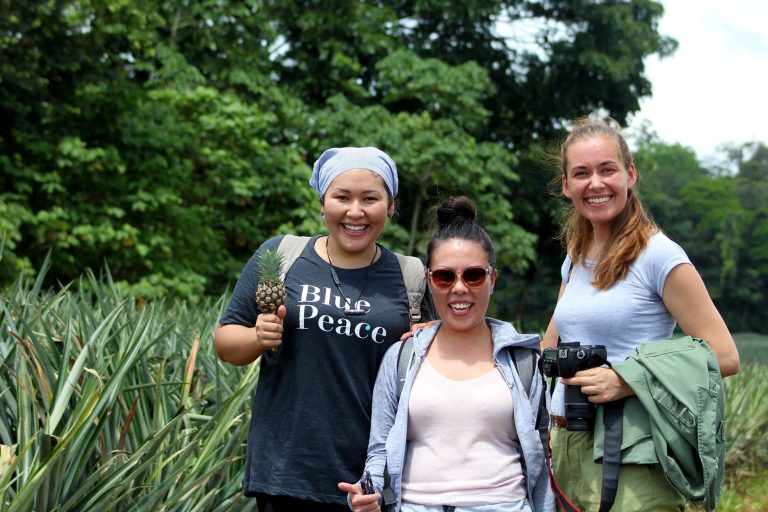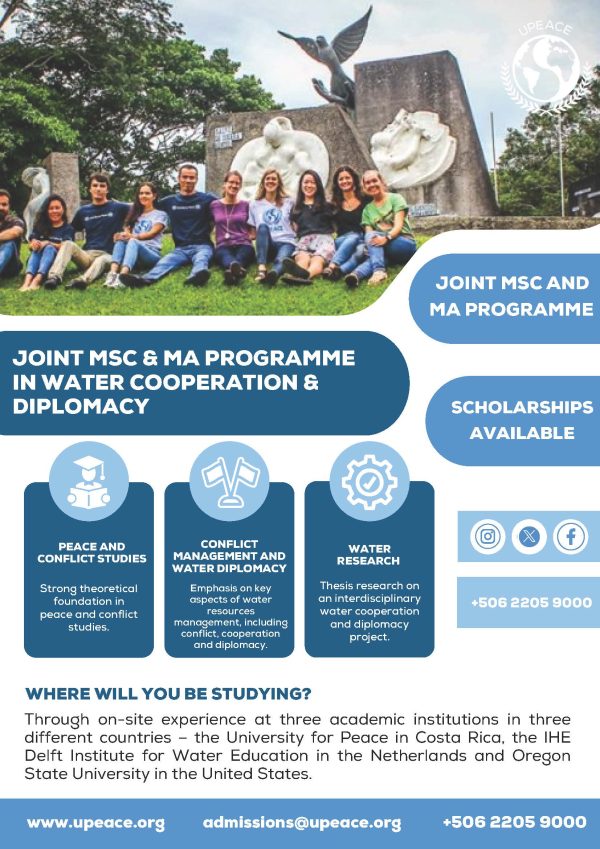M.A. in Water Cooperation and Diplomacy
M.A. in Water Cooperation and Diplomacy
A master’s programme jointly offered by the University for Peace in Costa Rica, the IHE Delft Institute for Water Education in the Netherlands and Oregon State University in the United States.
Water connects all cultures and communities, across all scales—from wells to watersheds, rain to rivers. Managing water is complex and requires so much more than policy—it takes people, diplomacy and careful consideration of the history and culture surrounding this precious resource.
Designed for both professionals and graduate students, this Master of Science programme in Water Cooperation and Diplomacy (WCD) builds on this philosophy and encourages a broadened approach to water conflict and peacebuilding.
Through on-site experience at three academic institutions in three different countries – the University for Peace in Costa Rica, the IHE Delft Institute for Water Education in the Netherlands and Oregon State University in the United States.
Students develop a global context for water diplomacy and strengthen skills through highly experiential learning opportunities. Upon graduation, Alumni of the programme create a community of peers to help transform conversations toward building creative and peaceful solutions to water conflict worldwide.
If you’re interested in this programme and wish to apply, please email specialprogrammes@upeace.org or visit https://www.waterdiplomacymaster.org/ for more detailed information.
Programme Information
The programme provides tools and training in international settings, with a unique opportunity to undertake coursework and hands-on experiences in Costa Rica, the Netherlands, and the United States. Participants engage with cutting edge research and practice in the field of water cooperation and diplomacy.
Key strengths of the programme
The programme was developed to focus on the following areas of strength among the institutional partners:
- Strong theoretical foundation in peace and conflict studies
- Exposure to contemporary issues through field work at different scales, in both the Global South and Global North contexts
- Emphasis on conflict management and diplomacy from different points of view
- Foundation in conceptual understanding of the nexus of environment and development
- Training in practical skills for communication, diplomacy, and dispute resolution
- Extensive experience in interdisciplinary, team-based collaborative project work
- Extended networking opportunities with experts from different, complementary fields
Upon successful completion of the programme, students are awarded an M.A. in Environment, Development and Peace from the University for Peace, an M.Sc. from IHE-Delft in Water Cooperation and Diplomacy, and an M.S. in Water Resources Policy and Management from Oregon State University.
UNESCO-IHE carries out educational, research and capacity development activities in the broad fields of water engineering, water management, sanitation and governance. It is the largest international graduate education institute in the field of water.
UPEACE The University for Peace (UPEACE) is an institution of higher education dedicated to the study of peace. Created by UN General Assembly Resolution 35/55, the University for Peace is a global leader in research and education related to peace, security and conflict and will take the lead in training students in the underlying theories of and approaches to peace, security and conflict. Through this unique partnership, UPEACE will provide a broader historical, legal and theoretical context to water conflict. UPEACE’s geographical setting in the Global South will also expose students to water-related conflicts at different scales through field-based study and research. r Master o
Oregon State University has a strong graduate program in Water Resources that provides students access to a broad range of courses and faculty expertise, and the opportunity to also earn a certificate in Water Conflict Management and Transformation (WCMT). Coursework at OSU incudes a field-based component, addressing water conflicts ranging from local to international scales.
The programme is structured to reach out to as broad an audience as possible so that students from different disciplines and backgrounds may participate. Although all applicants with relevant background and sufficient academic preparation are considered for admission, most participants are expected to be professionals with several years of relevant work experience, involved in the water sector or other relevant sectors. They could be current or future water managers, decision-makers, or involved in planning, regulating, and managing access, allocation, and control of water resources and services at various scales. They might also be civil servants from ministries involved in water management, diplomatic staff, local authorities, local and international NGOs, water user associations, universities and research institutes, or professionals involved in dispute resolution wanting to include water-related issues in their portfolio.
Motivated individuals wanting to change careers are also welcome.
Please email specialprogrammes@upeace.org to find out how you can apply to become part of the next cohort!





